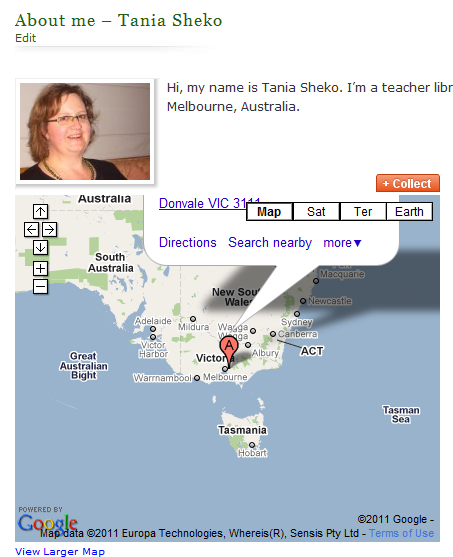
Learning anything means moving forward one step at a time, although sometimes you leap ahead and skip steps, or other times, slip and have to get up again. The steps are not always smooth but that’s life.
This is the first post for the first teacherchallenge for advanced bloggers in the Kick Start Your Blog.
The advanced teacher blogging challenge is to encourage experienced bloggers to continue to post regularly, improve the quality of their blog, increase readership, allow further networking and importantly, to learn together. It offers a unique showcase reflecting individual knowledge, approaches, experience, wisdom and hindsight of experienced bloggers. When we write reflective and informative posts on similar themes to the beginners and share with each other, we build a rich community and supportive network.
So, memory lane for my blog…
- When did you start blogging and what instigated this?
It was May 2008. I decided to take on a Web 2.0 course run by the Yarra Plenty Regional Library.
2. What did you start out blogging about?
My first post was just an introduction to the blog, and an explanation for the blog title. (My second post was a YouTube video of a shrimp on a treadmill! I think I was trying to be funny in both posts, and the reason was that I felt awkward writing and publishing, and was covering up with humour and hyperbole. By the way, the shrimp video was a metaphor for moving forward with technology. Really.
3. What did you enjoy about your early blogging?
I realised that I missed writing (from my school days), that I loved having a voice, and publishing in the hope that someone would read what I had to say and comment.
4. How much time did blogging take for you in the early days.
It actually ate up a lot of my time. The first time you do anything, it takes a while to figure things out. I’m not intuitive about technology, so it takes me longer to figure things out than usual. Just figuring out how to add pictures, videos, widgets, etc. – all these things come easily now, but not then.
5. What frustrated you about your early blogging efforts?
Well, in those days, my computer would crash pretty often, so I’d lose what seemed like hours of thinking and writing. I refused to write on a word doc first, and so I used to curse a lot when things disappeared.
6. What were the highlights of your early blogging?
Receiving a response from people is definitely a highlight. I suppose, in a way, writing a blog is like posting journal reflections, so you do it for yourself, but it’s great to get comments, particularly when these develop into a conversation, and even moreso when you get to know people through this exercise.
7. Is blogging a selfish, lonely, egotistical (you get the picture) exercise?
People would sometimes sneer at me blogging, and tell me to get a life. Writing a blog is actually the opposite of a self-centred exercise because it connects you with other bloggers, with people who share your professional and personal interests, who support you and extend your thinking, who challenge you, and who, most importantly, take you out of the walled garden of schools and teaching.
8. Have you changed your blogging style or subject matter over the years?
Yes and no. I suppose I used to feature new technologies in education more often, but since then I’ve become more reflective about my practice.
9. What would you say to teachers or students about blogging?
I would say, just start blogging! It’s a space that belongs to you, giving you a voice, and documenting your development and learning. You’ll be surprised by the variety and depth of your progress when you look back through you posts.
10. Where do you get your blogging ideas from?
From my classroom experiences, from reading others’ blogs, Twitter and Facebook. Although most of the blogs I read are educational, they focus on different areas, eg art, literature, animation, libraries, museums, psychology, gifted learning, technology, music, science, maths, etc.


 from my
from my

